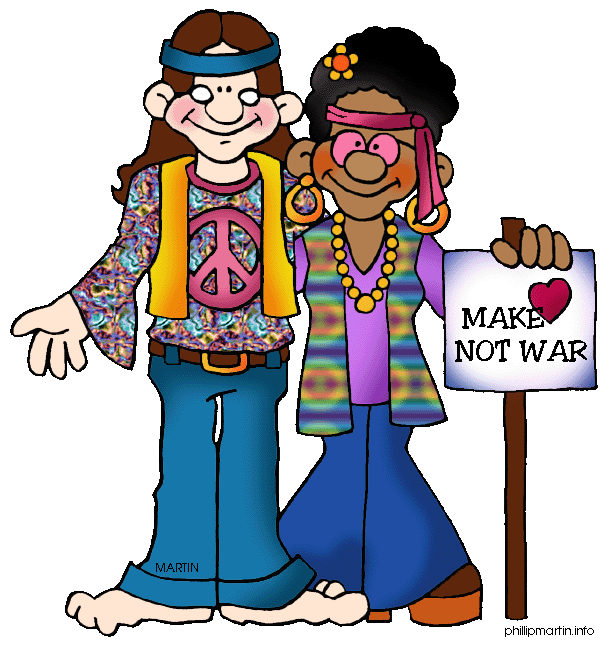




"Make love not war" is an anti-war slogan commonly associated with the American counterculture of the 1960s. It was used primarily by those who were opposed to the Vietnam War, but has been invoked in other anti-war contexts since.
The phrase's origins are unclear; Gershon Legman claimed to be the inventor of the phrase, so did American singer Rod McKuen. Radical activists Penelope and Franklin Rosemont helped to popularize the phrase by printing thousands of "Make Love, Not War" buttons at the Solidarity Bookshop in Chicago, Illinois and distributing them at the Mother's Day Peace March in 1965. They were the first to print the slogan. In April 1965, at a Vietnam demonstration in Eugene, Oregon, Diane Newell Meyer, then a senior at the University of Oregon, pinned a handwritten note on her sweater reading "Let's make love, not war", thus marking the beginning of the popularity of this phrase.

Flower Power was a slogan used during the late 1960s and early 1970s as a symbol of passive resistance and non-violence ideology. It is rooted in the opposition movement to the Vietnam War. The expression was coined by the American beat poet Allen Ginsberg in 1965 as a means to transform war protests into peaceful affirmative spectacles. Hippies embraced the symbolism by dressing in clothing with embroidered flowers and vibrant colors, wearing flowers in their hair, and distributing flowers to the public, becoming known as flower childre.
Flower Power originated in Berkeley, California as a symbolic action of protest against the Vietnam War. In November 1965, Ginsberg advocated that protesters should be provided with "masses of flowers" to hand out to policemen, press, politicians and spectators.
